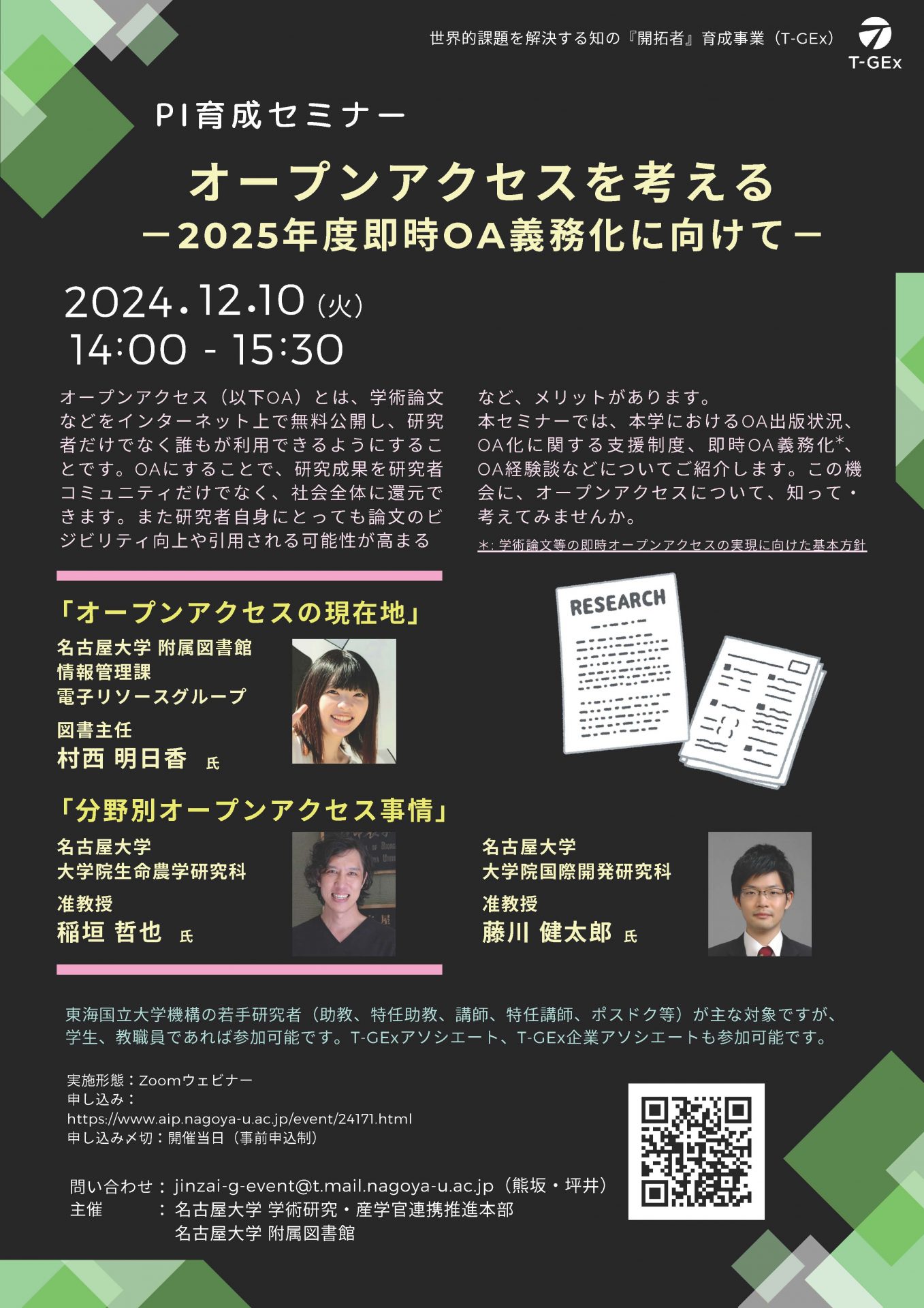■□■□■□■□■□■□■□■□■□■□■□■□■□■□■□■□■□■□■□■□■□■□■□■□■□■□■□■□■□■□■□■□■□■
The PI development seminar is held with the aim of supporting PIs (Principal Investigator, a term that can also mean the head of a laboratory or, in some cases, the person leading a research project) in improving their knowledge and skills.
■□■□■□■□■□■□■□■□■□■□■□■□■□■□■□■□■□■□■□■□■□■□■□■□■□■□■□■□■□■□■□■□■□■
Open Access is the free publication of academic papers and other materials on the Internet, making them available to everyone, not just researchers. Open Access allows research results to be shared not only with the research community but also with society as a whole. It also has advantages for the researchers themselves, such as improving the visibility of their papers and increasing the likelihood that they will be cited.
Nagoya University supports Open Access of research results in various ways, such as self-archiving in institutional repositories and partial subsidies for APC (Article Publication Charge), etc. From 2025, Open Access of publicly funded research results will become mandatory. Open access is a requirement for all researchers. Open Access is a topic for all researchers. Why don't you take this opportunity to learn about and think about Open Access?
*APC support is available for those whose main office is at Nagoya University.
Lecturer:
`Where we are now with Open Access’
Ms. Asuka MURANISHI
Nagoya University Library
Information Management Division
Electronic Resources Group
`Open Access Status by Research Field’
Dr. Tetsuya Inagaki
Nagoya University
Graduate School of Life Sciences and Agriculture
Dr. Kentaro Fujikawa
Nagoya University
Graduate School of International Development


